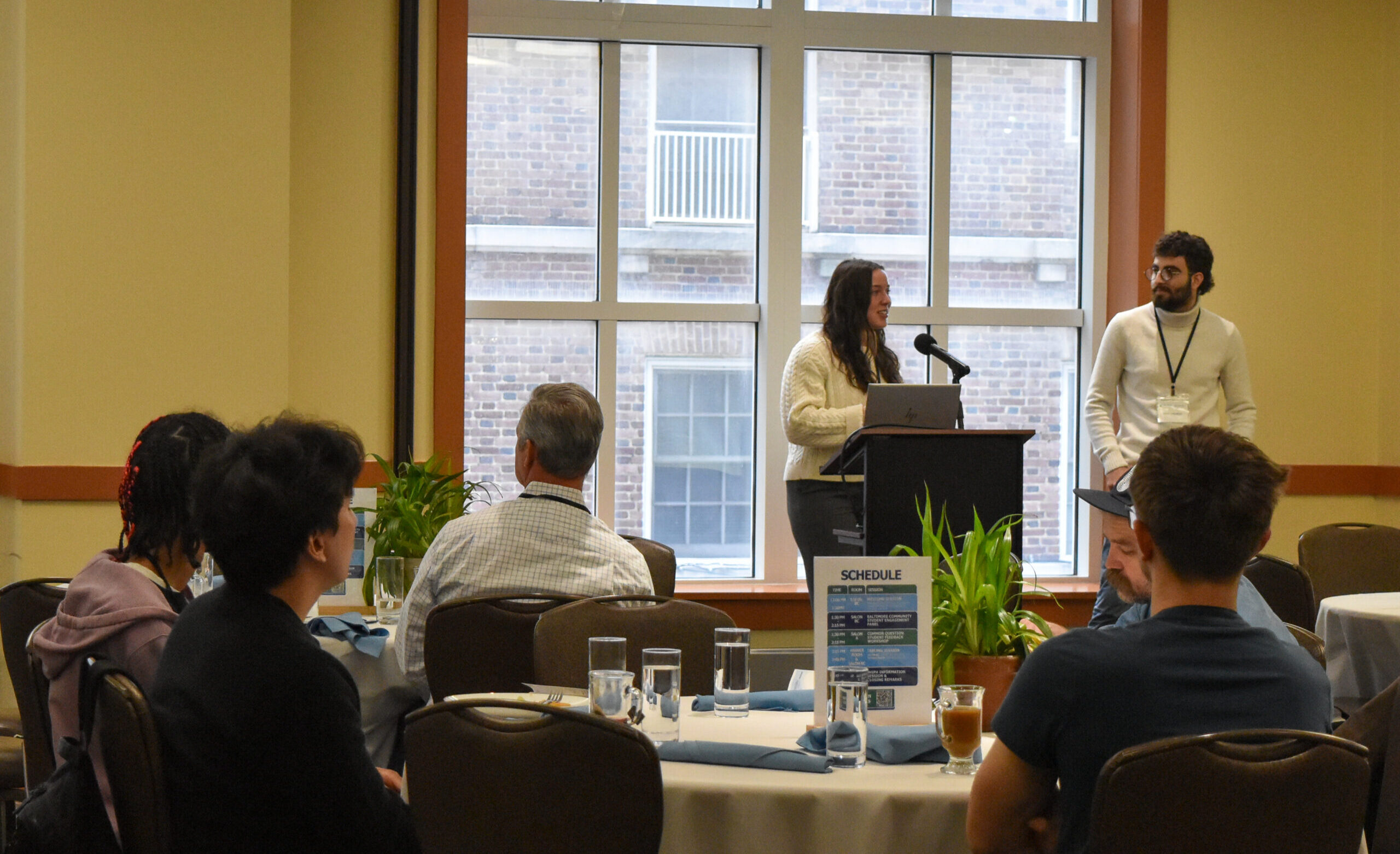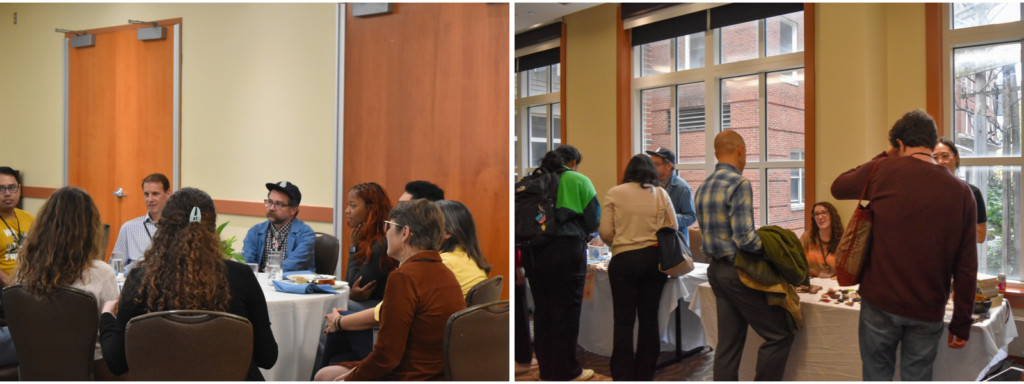
Event Recap: Inaugural Planetary Health Student Symposium
The Johns Hopkins Institute for Planetary Health (JHIPH) proudly hosted its first-ever Planetary Health Student Symposium, bringing together students, faculty, and staff from across Johns Hopkins University to explore the intersections between human health and the health of our planet.
This inaugural event celebrated student leadership in shaping a healthier, more regenerative future—highlighting how interdisciplinary collaboration is essential in addressing global environmental challenges.
A Day of Connection, Discovery, and Inspiration
JHIPH’s Executive Director, Rachel Marcus, opened the symposium with a warm welcome, providing a brief introduction to the field of Planetary Health and JHIPH’s mission to bring together faculty, staff, and students across disciplines to address the urgency of the Earth crisis and its impact on humanity.
Next, Planetary Health Campus Ambassadors Eva Breiland and Emin Soguktas took the stage to introduce the new Planetary Health Student Program—a collaborative initiative designed to bring together student groups from across Johns Hopkins to promote awareness, participation, and understanding of Planetary Health initiatives. The program aims to foster dialogue within the Institute for Planetary Health and the broader university community, ensuring that student voices and perspectives help shape Planetary Health efforts at Johns Hopkins.
JHU Office of Climate and Sustainability (OCS) Director, Julian Goresko, spoke next, orienting attendees to the school’s vision and strategy for advancing healthy, just, and sustainable environments at JHU and around the world.
The program’s keynote address, delivered by Professor Anand Pandian of the Krieger School of Arts & Sciences, offered thought-provoking insights into the social and cultural dimensions of Planetary Health. His remarks encouraged attendees to think critically about how stories, ethics, and imagination shape our collective response to environmental change.
“Health is not only personal but also social, environmental, and imaginative. Planetary Health provides a framework for understanding this interdependence.” – Anand Pandian

Interactive Breakout Sessions
Participants then chose between two engaging breakout sessions:
- Common Question Student Feedback Workshop: A lively, collaborative session co-led by students and Nate Brown, Senior Lecturer and Associate Director of the Writing Center, where participants shared feedback on current Planetary Health programming and brainstormed new ideas to strengthen student engagement across Johns Hopkins.
- Baltimore Community Student Engagement Panel: A dynamic discussion featuring community partners and campus collaborators who underscored the importance of building authentic, reciprocal relationships between students and Baltimore communities. Panelists shared how local partnerships can amplify learning while advancing community priorities.
Collaboration and Looking Ahead
During the coffee and tabling hour, attendees connected with representatives from campus offices, student organizations, and centers working on sustainability, public health, and community engagement, including:
- JHIPH
- JHU Planetary Health Student Program
- Planetary Health Alliance
- Center for Social Concern
- Ecological Design Collective
- Common Question
- GreenHacks
- Hopkins Dining
- Students for Environmental Action
- Alternative Protein Project
The day concluded with an Institute for Planetary Health Information Session, where JHIPH staff provided updates on the Institute’s progress in its first year and invited participants to explore future collaboration opportunities. JHIPH leadership closed the event by thanking attendees for their enthusiasm and commitment to advancing Planetary Health at Johns Hopkins and beyond.
Learn More
Students, faculty, and staff interested in getting involved can find more information about student groups and initiatives at planetaryhealth.jhu.edu/get-involved/explore-student-groups.

